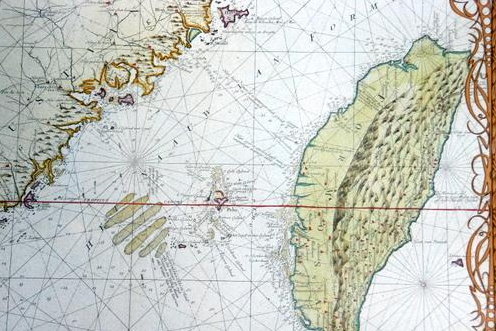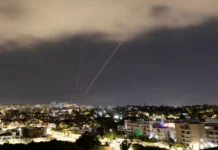Reply to Mikawasima Tookjoo, by Peter Taaffe
Rather than Laurence Coates demonstrating “a number of methodological errors”, it is Mikawasima Tookjoo who, unfortunately, suffers from this malady. His latest document demonstrates a complete lack of understanding from a Marxist point of view of the national question in general, and particularly its dynamic development. In addition he is quite wrong on a number of specific issues, including the central issue of the national question in Taiwan. We shall reply to him in the order in which he sets out his arguments. Mikawasima does not develop a serious case but makes assertions. Moreover, there is little in his document on Taiwan but a number of throwaway lines on many other questions pertaining to the national question in general in different situations. We are therefore compelled to answer these arguments.Mikawasima baldly states: “Taiwan has never been a nation. Before the Japanese colonisation, Taiwan was a backward region without social cohesion. There was no national movement whatsoever in Taiwan.” His “methodological errors” are clearly on display here. His reasoning is that there never was a Taiwanese nation and so it must remain today. (See the articleTaiwan’s history: Every five years a rebellion by Laurence Coates. This refutes Mikawasima’s arguments because it shows that there is a national consciousness of being Taiwanese. Even if this did not exist in the past, that does not mean on the basis of events that a national consciousness could not take shape.)
India was not a ‘nation’ but a series of states ruled by the moguls and maharajahs before British imperialism’s intervention. In fact, as Marx pointed out, such was the absence of national consciousness that India was conquered by the British with Indian troops in the main controlled by a thin layer of British officers. However, in bringing most of India under its domination, the British helped to create precisely an all-India national consciousness. Equally, imperialist intervention in Africa laid the basis for the development, firstly of an African national consciousness. There, also, by carving out separate artificial states which cut across the living body of tribal and ethnic groups, a national consciousness was forged in the different countries. In turn and over time, this developed into opposition to foreign domination, which rose to such a level that it forced imperialism to retreat. Imperialism was forced to switch from outright military domination to the indirect control exercised today.
Our critic, because of his dogmatic and fixed position on the national question, has no conception of how a national consciousness can arise where previously there was no basis for it. Under specific conditions, out of ethnicity, religion or even language, a national consciousness can crystallize under certain conditions. For instance, the Bolsheviks never considered that the Jews in Russia or Central Europe for that matter constituted a ‘nation’ in the proper sense of the term – although Lenin sometimes referred to them as a ‘nation’ – but had more of the characteristics of a specially oppressed caste. Because of the scattered character of the Jews with no clear distinct homeland, the idea of a separate nationality occupying a specific territory did not arise. It was because of this, as well as other factors, that Trotsky and the Marxists opposed the Zionist dream of a homeland, particularly in the Middle East, where, as Trotsky put it, it would become a “bloody trap” for the Jews themselves. However, because of the terrible persecution of the Jews at the hands of the Nazis in the 1930s, Trotsky modified his position. He was prepared to concede a “homeland” could be established for the Jews, perhaps in Latin America or Africa with the agreement of the peoples of these continents, but on no account in the Middle East, where it would be used as a wedge by imperialism against the Arab revolution, which is what happened.
The Middle East
This opposition to a state for the Jews, at the expense of the Palestinian people, was our position – that is, Trotskyists and Marxists – up to 1948 and afterwards. Israel was certainly an “artificial creation” and a pro-imperialist one at that when it was first established. However, in time, a separate Israeli nation and the national consciousness which went with this developed. Ignoring reality most Marxists closed their eyes to this development. With the exception of the CWI, every other Marxist and even Trotskyist organization repeated by rote, and many do right up to the present day, the previous position of Marxism of total opposition to any state entity for the Israelis or the Jews. Most of them opted for the restoration of a secular, democratic Palestinian state with minority rights for the Jews. But this is totally inadequate and, in any case, cannot be realised on a capitalist basis.
Like Mikawasima now, they invariably took refuge from our criticisms of this policy by referring to the “pro-imperialist, politically developed consciousness” of the Israeli population. This is now applied by our critic to the Taiwanese – or at least to the “nationalist” population – as well as, the loyalists in Northern Ireland, et al. Such an approach is false to the core. It does not take into account the change in the development of consciousness and moreover is completely bereft of any strategy to defeat imperialism. Let us assume that a “pro-imperialist consciousness” exists in Israel and some other states – which is a gross oversimplification – how is the Israeli ruling class and imperialism that stands behind it to be defeated? By “armed struggle”? However, the heroic Palestinian Intifadas have failed to defeat by armed struggle alone the Israeli ruling class and imperialism. On the other hand, the Palestinian bourgeois pursuing its present policy of compromises, accepts Bantustan-style ‘states’ in Gaza and the West Bank. Merely to pose the issue shows how futile are these strategies – invariably supported by sectarian grouplets with no ear to the ground – in realising the dreams of the Palestinian people for democratic rights and a viable Palestinian state.
How can imperialism be defeated in the Middle East and specifically, in the case of the Israeli state, without a policy of changing the alleged “pro-imperialist” consciousness of the Israeli population? This in turn would be impossible without recognising the consciousness of the Israeli population on the need for maintaining their own state. The idea that this state can be dismantled or by implication the Jewish population can be “driven into the sea” was always a chimera that we combated. But this has now been graphically underlined by the development of events in the past period. Only by recognising the aspirations of the Palestinian people for their own independent viable state and reconciling this with the demands, equally, of the Israelis for their own state, can a start be made to defeat the Israeli ruling class and imperialism which stands behind it. This opens up the possibility of class unity. The CWI rejects the idea that there is a lasting ‘solution’ on the basis of capitalism. For instance a “two-state” capitalist policy pursued by both the Palestinian bourgeois and a layer of the Israeli bourgeois, as well as imperialism, is no answer. Only a socialist confederation and the right of both the Israelis and the Palestinians to form their own states within this framework would begin to pose a solution to the intractable situation which exists at the present time.
These general remarks on the national question are necessary because they illustrate 1) how consciousness on this issue can change, which Mikawasima completely discounts and 2) how vital it is to carefully analyse national consciousness in each specific situation without which it is not possible to find a road to all sections of the masses.
Taiwan
On the issue of Taiwan, our critic is equally at sea on the question of nationalism. He says, on the one side, that Taiwan has “never” been a nation. Yet a little later, when he deals with its history, he says that, “The growth of Taiwanese nationalism came after the successful land reform” and as a result of “the support from US imperialism after 1972”. So a Taiwanese nation does not exist but Taiwan nationalism exists! He adopts a completely undialectical, black and white approach, which does not see and examine phenomena from an all-sided point of view. There is now clearly a consciousness of a separate entity, Taiwan, and a broad “national consciousness” amongst the majority of the population. There is also a mixed consciousness with a section considering themselves both “Taiwanese” and “Chinese” and, as Laurence explains, still other layers with a different consciousness.
In order to justify his absurd assertion, “Taiwan is not a nation”, he seeks to invoke Rosa Luxemburg and to criticise Lenin and Trotsky’s approach to the national question. Incidentally, he does this selectively as, later on, he seemingly supports Trotsky over the Ukraine. He states: “Lenin’s theory of ‘national self-determination’ has been canonised by Stalinism”. Nothing could be further from the truth. Lenin’s stand on the national question, as Trotsky pointed out, was one of the “treasures of humankind”. Without that approach, it would not have been possible to carry through the Russian Revolution. This was a state, we have to remember, that under Tsarism was a regime with a population made up of 43 per cent Great Russians and 57 per cent other nationalities. Laurence, in his original reply, was correct to argue that without the defence of the right to self-determination, against Rosa Luxemburg who was wrong but who is praised by our critic, it would not have been possible to gain the confidence of the oppressed nationalities which laid the basis for a socialist federation of Russia and, later, the USSR.
Rosa Luxemburg was a great Marxist, a “mountain eagle”. But a mountain eagle can sometimes fly as low as a barnyard hen but a farmyard hen cannot reach the heights of a mountain eagle. Unfortunately, our critic falls into the latter category in his support for the weak points in Rosa Luxemburg’s arguments on the national question and not her strengths. To oppose the right of self-determination under the rule of the Tsar was to give succour and support to the Great Russian landlords and capitalists as Lenin correctly pointed out. A new socialist world could not be built with the slightest taint of national oppression of the 57 per cent non-Great Russians. Lenin argued that only by standing for the right of self-determination – not advocating it in every case – could the confidence of the oppressed nationalities be won. In this case, they would then voluntarily remain, he argued, within a socialist confederation after the overthrow of Tsarism, landlordism and capitalism.
It is a fact that Lenin’s perspective was borne out because that is what happened. In the case of Finland it is our critic who is “completely wrong”. He implies there was a different approach to the national question in Finland and the Baltic states than in the other states such as Georgia. To paraphrase him, “This is completely wrong”. In the case of Finland, the expressed wish of the Finnish people for their own independence was granted by the Bolsheviks, not because the capitalists defeated the proletariat. The civil war in Finland started after the Bolsheviks granted Finnish independence (December 1917), and the victory of the White forces was declared in May 1918. Independence was a recognition of the democratic will of the Finnish people. Because of this right up to this day – despite the experiences of Stalinism – Lenin is widely perceived and honoured in Finland for recognising Finnish independence. The same approach motivated the Bolsheviks in relation to other states. Of course the demand for the “right of self-determination” is not a socialist but a bourgeois-democratic demand. As such, as the part is subordinate to the whole, it is, of course, not an inviolable principle for a Marxist. Sometimes it takes second place to specifically socialist demands and actions. Our criteria are always that what is ultimately progressive is that which enhances the strength, confidence and power of the working class. What undermines or weakens this is retrogressive and should be opposed. For instance in the well-known case of the Saar referendum in 1936, Trotsky opposed the return of the region to Germany which formally could be seen as a violation of the right to self-determination for the German-speaking population. This however, was secondary to the fact that, concretely at that time, it would place them under the heel of fascism.
In the case of Georgia and the Ukraine, the Red Army did intervene but at the instigation of the masses who wanted to carry through a revolution. In Georgia and the Ukraine, the Mensheviks there raised the flag of “self-determination” as a device to derail the revolution in opposition to the demands for complete “sovietisation” from the workers and peasants, who wanted to carry through the revolution in the same way as the Bolsheviks had done in Russia. Notwithstanding this Trotsky was cautious about the intervention in Georgia, for instance, because he believed that the process of “sovietisation” would need more time to “mature” before the Red Army was called upon to intervene. He later wrote: “Menshevik Georgia could not hold out. That was clear to all of us. However, there was no unanimity as to the movement and methods of sovietisation. I stood for a certain preparatory period of work inside Georgia, in order to develop the uprising and later come to its aid. I felt that after the peace with Poland and the defeat of Wrangel there was no direct danger from Georgia and the denouement could be postponed. Ordzhonikidze, supported by Stalin, insisted the Red Army should immediately invade Georgia, where the uprising had presumably ripened. Lenin was inclined to side with the two Georgian members of the Central Committee. The question in the Politburo was decided on the 14 February, 1921, when I was in the Urals.
“The military intervention passed quite successfully and did not provoke any international complications, if one does not take into account the frantic campaign of the bourgeoisie and the Second International. And yet the method of the sovietisation of Georgia had tremendous significance during the next few years. In regions where the toiling masses prior to the revolution had managed in most cases to go over to Bolshevism, they accepted subsequent difficulties and sufferings as connected with their own cause. This was not so in the more backward regions, where the sovietisation was carried out by the army. There the toiling masses considered further deprivations a result of the regime imposed from outside. In Georgia, premature sovietisation strengthened the Mensheviks for a certain period and led to the broad mass insurrection in 1924, when, according to Stalin’s own admission, Georgia had to be ‘reploughed anew’.” (Stalin, page 268 – 1947 edition.)
This clearly shows how careful and sensitive to national feelings Trotsky and Lenin were. However, the intervention of the Red Army in these two cases was similar to the use of the forceps in the delivery of a difficult birth, and in no way violated the principle of “self-determination”, but furthered the socialist revolution.
Our critic quotes Rosa Luxemburg, who stated – while she was in prison and uninformed of the real developments in Russia – that the Bolsheviks, “By this nationalistic demand [self-determination]… brought on the disintegration of Russia itself, pressed into the enemy’s hand the knife which it was to thrust into the heart of the Russian Revolution.” On the contrary, because of the sensitive approach of Lenin and of Trotsky as well, on the national question, instead of the centrifugal disintegration of Russia, the opposite took place: the cementing of relations between the workers in Great Russia and the masses in the rest of the former tsarist empire, united in a great socialist federation.
Rosa Luxemburg made the same mistake on the land issue as she did on the national question. She opposed the granting of the land to the peasants, which she saw as a retrogressive step economically. But, without this concession giving the land to the peasants, they would not have been welded into an alliance with the working class. Then the Russian Revolution, even if it had taken place in the cities, would have perished. It is sometimes necessary to take two steps back in order to take one step forward in cementing the alliance between the working class and the peasantry. The idea of collectivisation, as the Bolsheviks and the CWI have explained on many occasions, could have only been achieved by a voluntary decision of the peasantry if it was linked to the development of large-scale industry.
Mikawasima is also wrong on the issue of Yugoslavia where he states: “Today, after seeing the counter-revolutions in the form of nationalism in the former USSR and Yugoslavia, everyone will agree with [Rosa Luxemburg].” He takes a pro-Stalinist position in supporting the imposition of a federation of Yugoslavia against the will of the Slovene and Croatian populations. Scandalously, this is justified on the basis that the Slovenes and Croatians “enjoyed huge privileges”. On the contrary, the nationalism of the oppressed masses is sometimes the “outer shell of an immature bolshevism”. With Mikawasima’s approach – implacable hostility to the masses’ demands for national rights – they will never break out of this shell and find a road to socialism.
He adopts a similar position towards the loyalist/protestant population of Northern Ireland. He comes up with a new definition of a whole “counter-revolutionary people” who, in the case of the “Ulster unionists” are “naturally” so! If any “privileges” existed in the cases of the Slovenes and the Croatians, and particularly the protestant population of Northern Ireland, they were marginal. But even if these existed – which, in substance, is not true of the Croatian and Slovene workers and peasants – national oppression can still exist from a democratic and cultural point of view. But our author is so wedded to extirpating Taiwanese nationalism that there can be no progressive content to it in any shape or form.
He makes this clear when he declares: “Nationalism, particularly in this historical epoch, cannot be neutral. Those nationalisms (Ukrainian, Taiwanese, Croatian, Zionist, Estonian, white supremacy, etc.) can only be reactionary by nature. That is the historical lesson we have to learn.” Why does he not include in his list of nationalisms the outlook, the national consciousness, if you like, of the South African masses in the struggle against apartheid? After all, he throws in that Trotsky supported the slogan of a “Black Republic” while opposing any concessions to the racism of the white working class. Unfortunately, Trotsky was wrong on this slogan and a mere repetition of this incorrect position today is not a convincing argument on the part of Mikawasima. The African masses themselves instinctively understood the need to appeal to the whites by not fighting for a “Black Republic” but for democracy, one person one vote and for socialism.
While allegedly opposing all “nationalisms”, which are implicitly reactionary, our critic nevertheless seems to support Trotsky’s slogan of an “independent soviet Ukraine” and makes the concession that this could be applied in Xinjiang on the basis that it “had its own revolutionary government in the 1940s under the influence of the USSR”. So with the benediction of Stalinist Russia and the establishment of its own “revolutionary government”, Trotsky’s approach has some relevance “but is completely irrelevant on Taiwan”. The regime in Xinjiang was not at all “revolutionary” from an authentic Marxist point of view. This was a government propped up by the dictatorship of Stalin for his own great power reasons and not because it was “revolutionary”.
Mikawasima also states: “According to him [Laurence Coates], the ‘Chinese dictatorship’ is ‘one of the most repressive regimes in the world’.” He then goes on to make the completely false assertion: “By this, presumably, he [Laurence Coates] implies that Taiwan’s ‘democracy’ is better than the ‘repressive dictatorship’ in the mainland.” In fact, Laurence did not imply such a preference. Nevertheless, the Chinese regime is a dictatorship. Moreover, from the standpoint of the Taiwanese masses they would not wish to put themselves under its control, preferring the democratic rights, however limited, which they enjoy under a bourgeois-democratic regime, which is what Taiwan is.
His allusion to the fate of Max Schachtman, who ended as a “cold war socialist” is quite incredible. The implication of his statement is that Marxists in the West should support workers voluntarily placing themselves under the control of a Stalinist dictatorship. This is not a policy for the masses in Taiwan or elsewhere but is one for a meeting room and, if anything, a very small one at that, where assorted sectarians can swap ‘formulas’ that are totally inappropriate and inapplicable to the working class movement in the modern era.
The empty phrases about Trotsky’s position on Brazil, we have replied to in ‘Afghanistan, Islam and the Revolutionary Left’ (http://www.socialistworld.net/publications/afghanistan/index.html). The same applies to the throwaway arguments and insults of Mikawasima when he refers to our alleged support for a “democratic and socialist UVF”, which is quite false (seehttp://www.geocities.com/socialistparty/frameset.htm). His dismissal of “class unity” is quite shameful for a Marxist but is in the tradition of sectarian organisations and individuals who can never find a road to the working class. In Northern Ireland, where “two nationalisms” exist, a Marxist policy involves not making concessions to one of these at the expense of the other but of supporting the democratic rights – so long as they don’t violate the rights of others – of both the protestant/loyalist and catholic/nationalist populations – including the right to march in agreed areas – but at the same time seeking to forge class unity to defeat the religious sectarians on both sides of the divide and the British and Irish ruling classes.
While taking full account of the differences between the situation in Northern Ireland and Taiwan, this approach has a much better chance of winning workers in the different camps in Taiwan – whether they be the Blues or the Greens – than the crude support of one “nationalism”, Chinese nationalism, at the expense of the rights of other workers, which is clearly the position of our critic. He asks the question: “I am very interested – which side are you on?” We could turn the question back on him and ask: “Which side are you on – the Chinese state and its demands for the forcible incorporation of peoples who do not want to ‘join’ their state?” The only conclusion we can draw from your argumentation is that you are. We, on the contrary, are also not in favour of the Taiwanese ruling class – the leaders of the Blues or the Greens – but support the working class. We seek to win them on the basis of a principled but sensitive application of a Marxist approach to the national question. This in turn is linked to all the other transitional demands on the economy, which can win the working class of Taiwan to the idea of a democratic socialist solution.




